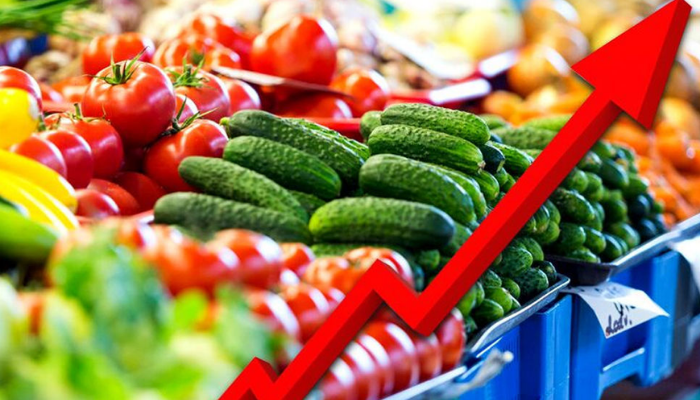
Stakeholders blame insecurity, poor funding, and inconsistent policies as dependence on imported food deepens…
Nigeria’s appetite for imported food and beverages surged significantly in the first half of 2025, with import values climbing to ₦677.3 billion, representing a 44.48 percent increase from ₦468.76 billion recorded in the same period of 2024.
Data from the National Bureau of Statistics (NBS) show that the jump was driven largely by a rise in imports of primary food and beverage items meant for household consumption, even as processed household imports saw a slight dip.
According to the report, processed food and beverage imports for household use fell marginally by 1.85 percent, from ₦699.58 billion in H1 2024 to ₦686.81 billion in H1 2025. However, primary food imports for industrial use rose by 1.37 percent to ₦982.49 billion, while processed food imports for industrial use increased by 7.28 percent to ₦1.06 trillion during the same period.
Experts Blame Weak Local Production, Insecurity
Members of the Organised Private Sector (OPS) say the surge in imports exposes Nigeria’s fragile domestic production base. They linked the rise to insecurity, weak agricultural capacity, inconsistent government policies, and a lingering consumer preference for imported brands perceived to offer better quality.
The Chairman, Agricultural and Allied Group of the Lagos Chamber of Commerce and Industry (LCCI), Tunde Banjoko, said the import figures highlight a trust deficit in locally produced goods.
“From this data, it’s clear that consumers have more confidence in imported raw materials, food items, and beverages than in what’s produced locally,” Banjoko noted.
He blamed the situation on quality control lapses, poor funding, and limited access to modern farming inputs, adding that inadequate storage and inefficient commodity boards have worsened the problem.
Banjoko urged the government to strengthen commodity boards to guarantee offtake and price stability, invest in storage facilities, and make agribusiness funding more accessible. “If we make local production scalable and competitive through better funding and technology, import numbers will begin to decline,” he added.
Insecurity Crippling Farm Output
The President of the Association of Small Business Owners of Nigeria (ASBON), Femi Egbesola, said insecurity and outdated technology have driven farmers off their lands, leaving local industries with limited access to raw materials.
“Many farmlands have been deserted due to insecurity. Farmers can’t plant or harvest, so manufacturers have no local inputs,” he said.
Egbesola added that Nigeria’s agricultural output remains low compared to global standards due to poor mechanisation. “Producing 10 tons of cassava in Nigeria takes about 30 acres of land, while in the Netherlands the same quantity comes from just three plots,” he explained.
He called for greater investment in technology-driven farming and mechanisation, adding that the gap presents an untapped opportunity for small and medium enterprises (SMEs) to invest in local production.
Import Waivers, Depreciation Drive Numbers
The Director of the Centre for the Promotion of Private Enterprise (CPPE), Muda Yusuf, attributed part of the import spike to temporary import waivers and exchange rate depreciation.
“The biggest driver of food imports remains the wheat value chain, bread, pastries, and noodles, which are Nigerian staples,” Yusuf said.
He noted that the 180-day waiver granted in 2024 for maize and brown rice imports had influenced the 2025 figures, as many consignments arrived early this year. “Because the data is in naira, depreciation has made the values appear higher, even if physical quantities haven’t increased significantly,” he added.
Purchasing Power Still Weak
Despite the rise in imports, the Director-General of the Nigerian Association of Small and Medium Enterprises (NASME), Eke Ubiji, cautioned that the figures don’t necessarily reflect improved consumer spending power.
“I doubt these numbers mean Nigerians are buying more. Inflation has eroded incomes, and many are reducing their consumption,” Ubiji said.
He explained that import growth may reflect industrial demand, not higher household consumption, as more Nigerians are switching to smaller and cheaper food options.
“Even people who never ate noodles before are eating them now because that’s what their money can afford,” he added.
Food Security Challenges Persist
Stakeholders agreed that Nigeria’s growing reliance on imported food and beverages underscores the need for a coordinated national policy that strengthens local production across agriculture, manufacturing, and trade.
They urged the Federal Government to tackle insecurity, improve value chain integration, provide affordable financing, and incentivise local processors.
Banjoko summed up the consensus:
“If local production becomes sustainable and competitive through funding, technology, and storage infrastructure, we can cut our import bills and ease pressure on foreign exchange.”
Food Inflation Trend
Official data show that food inflation, a key driver of Nigeria’s overall inflation has begun to ease. The NBS reported a food inflation rate of 16.87 percent in September 2025, down from 37.77 percent a year earlier.
However, analysts warn that without addressing the structural weaknesses undermining local food production, Nigeria’s fight for food security may remain an uphill battle despite temporary price relief.



